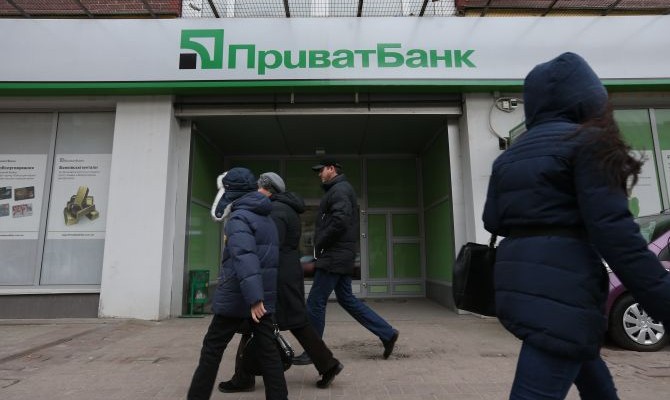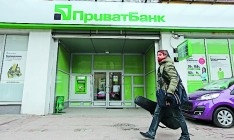Finance
TransactionsPrivatBank is forced to sell its subsidiaries to fulfill the requirements of the NBU

PrivatBank is selling its ninth-largest subsidiary bank of the same name in Georgia. The Bank of Georgia, the largest financial institution in the country, intends to buy the affiliate. The transaction price, according to the press service of PrivatBank, is GEL 92 mn or approximately UAH 750 mn.
Georgian songs
«The sale of the Georgian asset is associated with a good offer and the bank’s intention to focus on development of the Ukrainian market,» said the press service of PrivatBank. But GEL 92 mn is not a high price. It is only 1.18 of the capital of the Georgian financial institution, according to Privat’s calculations. On the backdrop of the global situation in the banking system, it is not profitable to sell banks at the moment.
The sale of the Georgian subsidiary is, most likely, a coercive measure. After all, the largest bank in Ukraine is in a tough situation. Indeed, as of October 1 Privat’s regulatory capital adequacy was 10.96%, while the required minimum is 10%, which means that in case of losses the financial institution is at risk of not fitting into the regulatory standard. Earlier, the press service reported that based on the results of the stress test PrivatBank needed UAH 4 bn for recapitalization. So far, the bank’s shareholders have increased the capital in the third quarter by only UAH 1.75 bn. This means the bank must find another UAH 2.25 bn.
PrivatBank is also experiencing liquidity difficulties due to the outflow of deposits. In January—October its depositors withdrew UAH 9 bn and close to US $2.7 bn from their accounts, while people and companies are becoming deadbeats on their loans with every passing day. PrivatBank Chairman of the Board Oleksandr Dubilet refused to comment on the deterioration of payment discipline among borrowers, but other bankers estimate the rate of bad debts in the banking system at 30%.
Despite these problems, the current level of the bank’s liquidity is still high at almost 90%, while the required minimum is 40%. Nonetheless, it is maintained with the assistance of the NBU. Privat is the second largest bank (after Oschadbank) in terms of refinancing.
As of November 1, PrivatBank’s debt to the NBU was UAH 17.6 bn, according to news reports. Bankers say that in November Privat took out a stabilization loan of UAH 1.2 bn. This was the second stabilization loan for the bank. Prior to that, it attracted another UAH 1 bn for financial recovery. Noteworthy is that representatives of PrivatBank denied receiving the stabilization loan, although more than three sources in the banking sector confirmed that financial assistance was rendered to the bank.
Getting a stabilization loan, in turn, means that the bank is already working with a curator from the NBU. As NBU Governor Valeria Hontareva said earlier, curators were appointed to all financial institutions chosen for revitalization by the NBU. They ensure that the money received from the government is spent on payments to depositors. In addition, they can dictate the terms to improve the bank’s operation — for example, advise on the sale of assets.
One step forward, two steps back
If PrivatBank sells its subsidiaries with a profit, it would improve its balance and rate of regulatory capital, says Managing Partner of at the Baker Tilly (Ukraine) Auditing Company Oleksandr Pochkun. And judging by Privat’s balance, it will turn a profit from the sale, not a loss. At the end of the third quarter in the «non-current assets for sale» line the bank had UAH 600 mn worth of assets, which was UAH 560 mn more than at the beginning of the year. On the same date the capital of the Georgian Privat had a comparable value. Assuming that in PrivatBank’s balance its Georgian subsidiary is estimated at UAH 560 mn, the financial institution may get UAH 190 mn in profits from its sale. This means that the bank’s regulatory capital will increase by the same amount, while the assets will decrease, which will help fit into the capital adequacy ratio.
Dubilet’s statement on his Facebook page may be interpreted as proof of the fact that the sale of the bank was a necessary measure: «To some extent it was a pity to sell the institution. We all cherish very warm feelings to Georgia». Surely, it is not just about feelings, but also about money. Georgian PrivatBank was developing successfully — the assets and the deposit base grew rapidly and it earned profits. It had no problems with capital adequacy. In particular, the bank’s Tier 1 Capital Ratio as of October 1 was 20.64% at a required minimum of 8%.
Privat’s banking group still has subsidiaries in Latvia, Italy and Portugal. This year, the group sold its subsidiary MoscowPrivatBank to Russia’s Binbank for UAH 1.9 bn. As of October 1 there were «investments in associates and subsidiaries» to the tune of UAH 681 mn on the bank’s balance sheet. Presuming that the situation in the Ukrainian banking system does not improve, Private will obviously be forced to sell its other subsidiaries.






 of the agreement of syndication with Financial Times Limited are strictly prohibited. Use of materials which refers to France-Presse, Reuters, Interfax-Ukraine, Ukrainian News, UNIAN agencies is strictly prohibited. Materials marked
of the agreement of syndication with Financial Times Limited are strictly prohibited. Use of materials which refers to France-Presse, Reuters, Interfax-Ukraine, Ukrainian News, UNIAN agencies is strictly prohibited. Materials marked  are published as advertisements.
are published as advertisements.